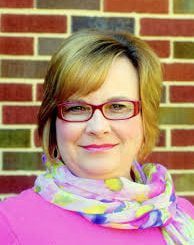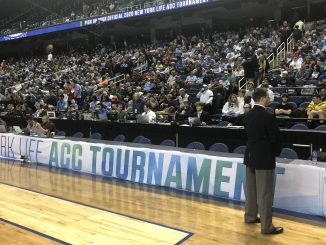
RALEIGH — The closure of public schools statewide through at least the end of March has left many parents scrambling to help their child stay current with school work. The closures also have many parents exploring the world of homeschooling for the first time.
In North Carolina, homeschooling is defined in state statute as “a nonpublic school consisting of the children of not more than two families or households, where the parents or legal guardians or members of either household determine the scope and sequence of academic instruction, provide academic instruction, and determine additional sources of academic instruction.”
Homeschool curriculum consultant Angie Thompson Cutlip spoke to North State Journal about her experiences. Cutlip, who taught in Wake County Public Schools for 10 years, has homeschooled for almost 19 years. She is also the director of ATC Educational Services.
Cutlip and homeschooling families she works with have been discussing the impact of COVID-19 on instruction both in public schools and in homeschools. The consensus has been that it is unclear how the virus will impact education, but it is great time for parents to think about their options.
“Homeschooling is a huge decision,” said Cutlip. “People make that decision for varying reasons. Your decision to homeschool is a big commitment as the education, future career and path of your children are at stake. Hopefully people pray, think, plan and prepare. In the end we each have to do what is best for our family.”
Homeschooling doesn’t inoculate your family,” warned Cutlip. “I’m sure your family will still visit Walmart for school supplies, and the internet is very useful but very dangerous as well. Just don’t make your decision out of fear! Pray and ask for wisdom and directions,” stressed Cutlip.
On the other hand, she added, maybe the school closures will open up doors for families to “embark on the wonderful journey of homeschooling.”
With so many options and so many learning differences from child to child, Cutlip says that families new to homeschooling might need some help to make good choices about the best curriculum. She says it’s important for parents considering homeschooling to understand the process and policies in place for the state of North Carolina.
Those wishing to homeschool need to file a Notice of Intent with the N.C. Department of Non-Public Education. It is important to note that once your NOI is filed, your intended students cannot stay enrolled in public school.
“You cannot open a homeschool in N.C. until you are actually going to withdraw your student from public school,” said Cutlip, who homeschooled both of her daughters.
By filing that NOI, parents should be prepared with a plan of which curriculum to use and to follow state laws, such as their student taking a nationally recognized standardized test each year beginning when a student is 7 years old.
“You need to read the law and know your responsibility,” said Cutlip. “If your child returns in a year or more to school, you will need to create a transcript/report card and whatever else that school requires.”
Cutlip went on to say that if your child plans to attend college you will also need to know what documentation that college requires.
If the plan is to start homeschooling in the fall, Cutlip recommends waiting until the summer to file an NOI. By waiting to file, it ensures your student completes the current school year according to the decisions of your student’s current school.
“If schools do close, you will have time to determine if homeschooling is the best choice for your family. This will be your opportunity to practice homeschooling,” Cutlip said.
Knowing the difference between requirements and recommendations is key, according to Cutlip.
“Finding the right match for your student’s needs and for your family dynamics is why I recommend testing prior to purchasing curriculum, which will be your responsibility,” Cutlip said.
Requirements for homeschooling per the N.C. DNPE include: parents having at least a high school diploma (or equivalent), filing a Notice of Intent to homeschool, operating the school on a “regular” schedule during at least nine calendar months of the year, maintaining attendance and immunization records for each homeschool student, students taking certain standardized test each year, and notifying the N.C. DNPE when closing a homeschool.
Between 2008 and 2018, the number of homeschool students in the state has increased 54% and the number of homeschools has increased by 45%. According to data provided by the N.C. DPNE, during 2018-19 there were 90,688 homeschools in the state, with 142,037 students spanning all K-12 grade levels that were attending those schools.
Wake County was the leader in 2018-19 with 13,022 students. The next closest was Mecklenburg with 10,285. Rounding out the top five were Buncombe with 4,621, Forsyth with 4,896, Union with 5,089, and Guilford with 5,367.
Records for homeschooling kept by N.C. DPNE go back to 1985, when laws first began covering homeschools in the state.



